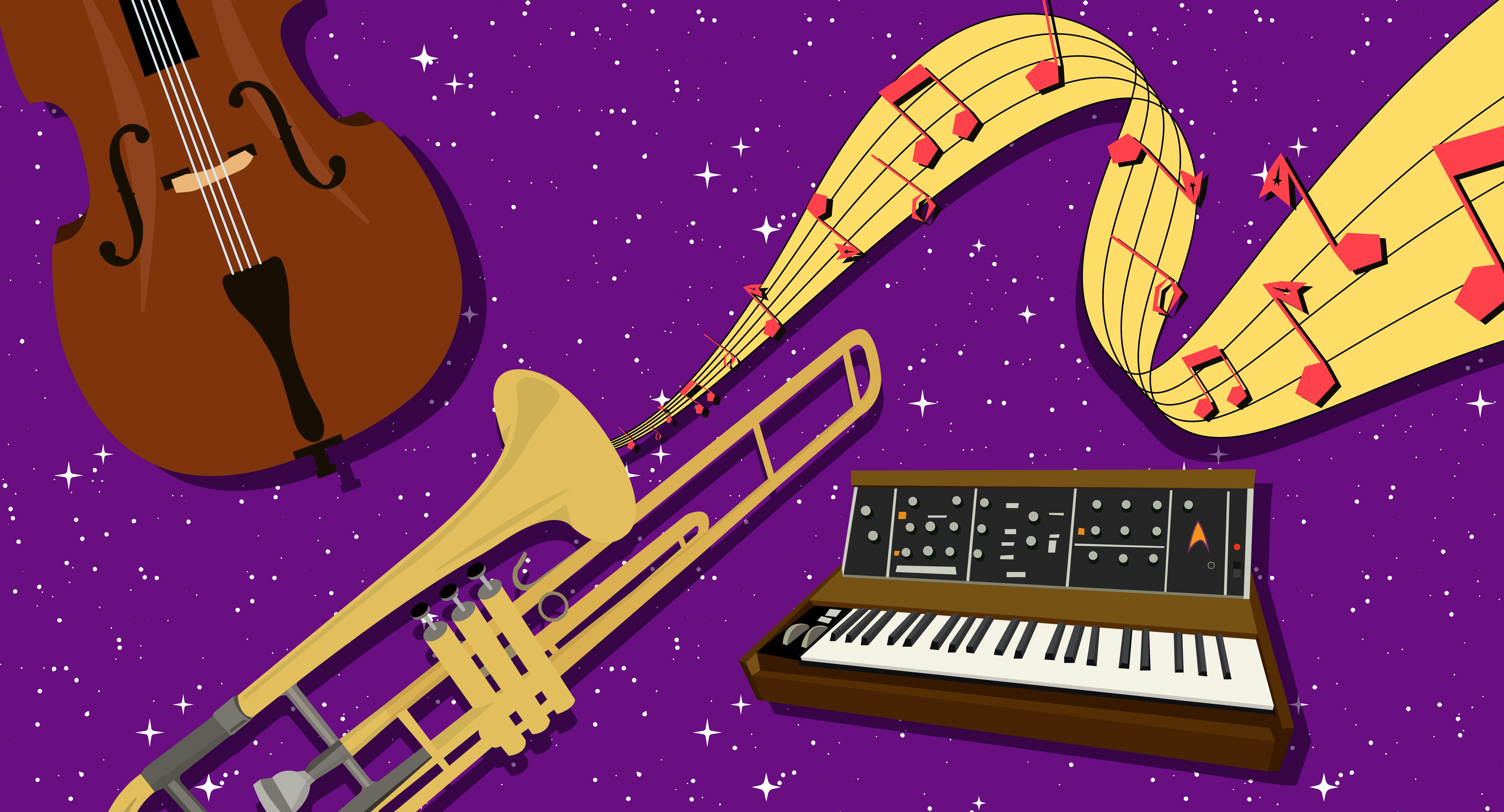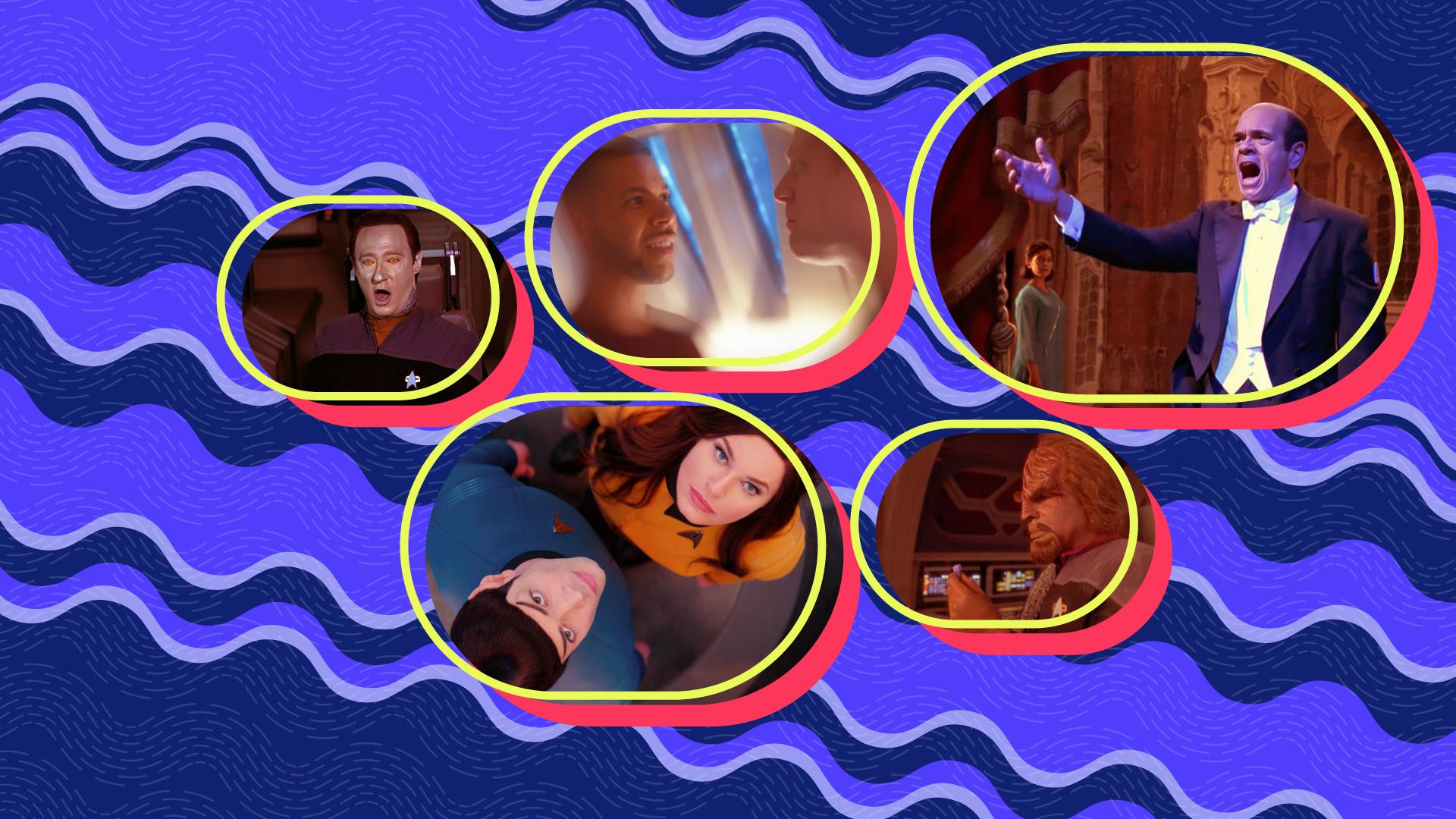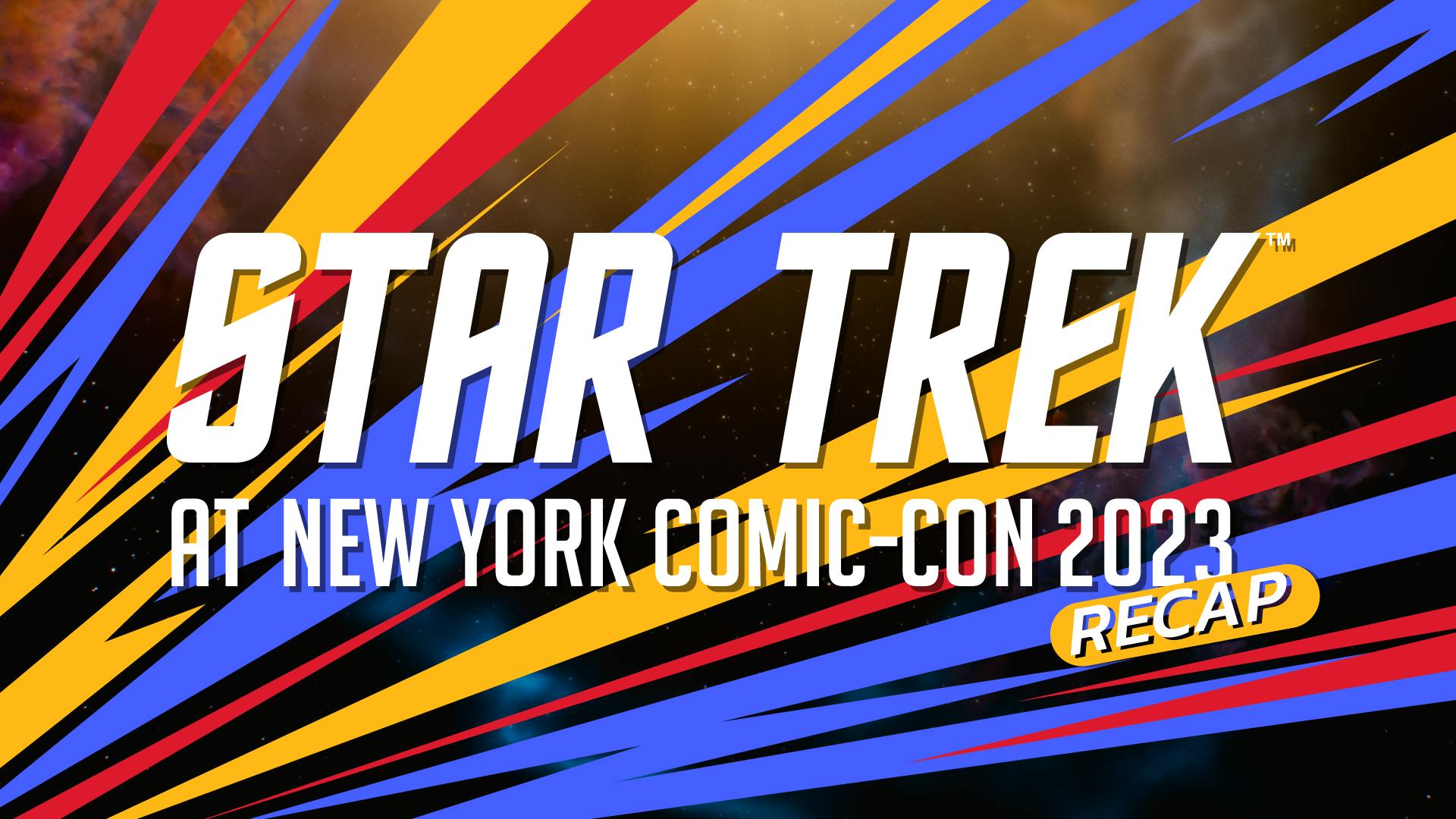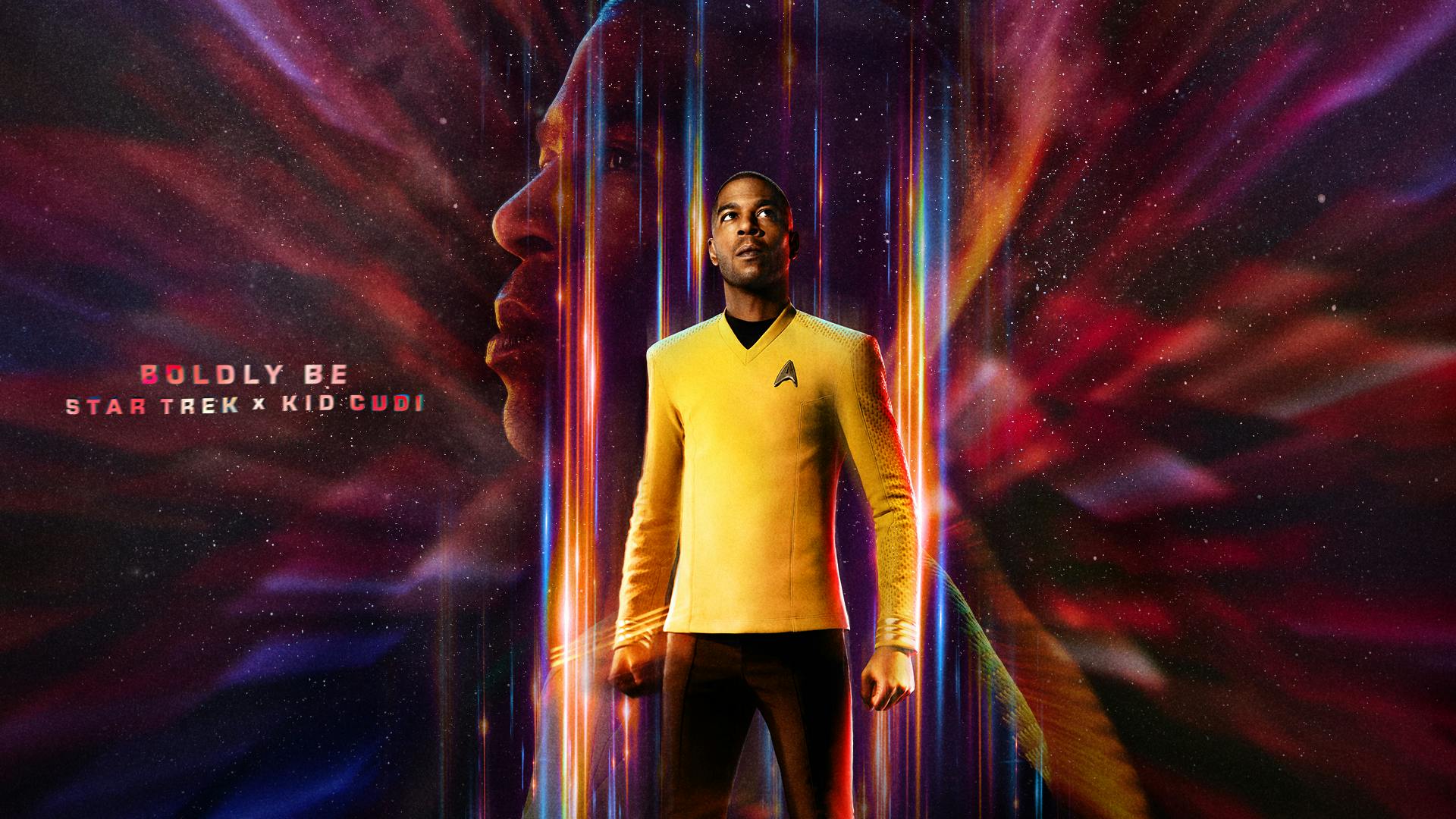Published Jun 21, 2023
10 Favorite Star Trek Musical Pieces
For World Music Day, let's look at how music played an intrinsic part of Star Trek's enduring legacy.
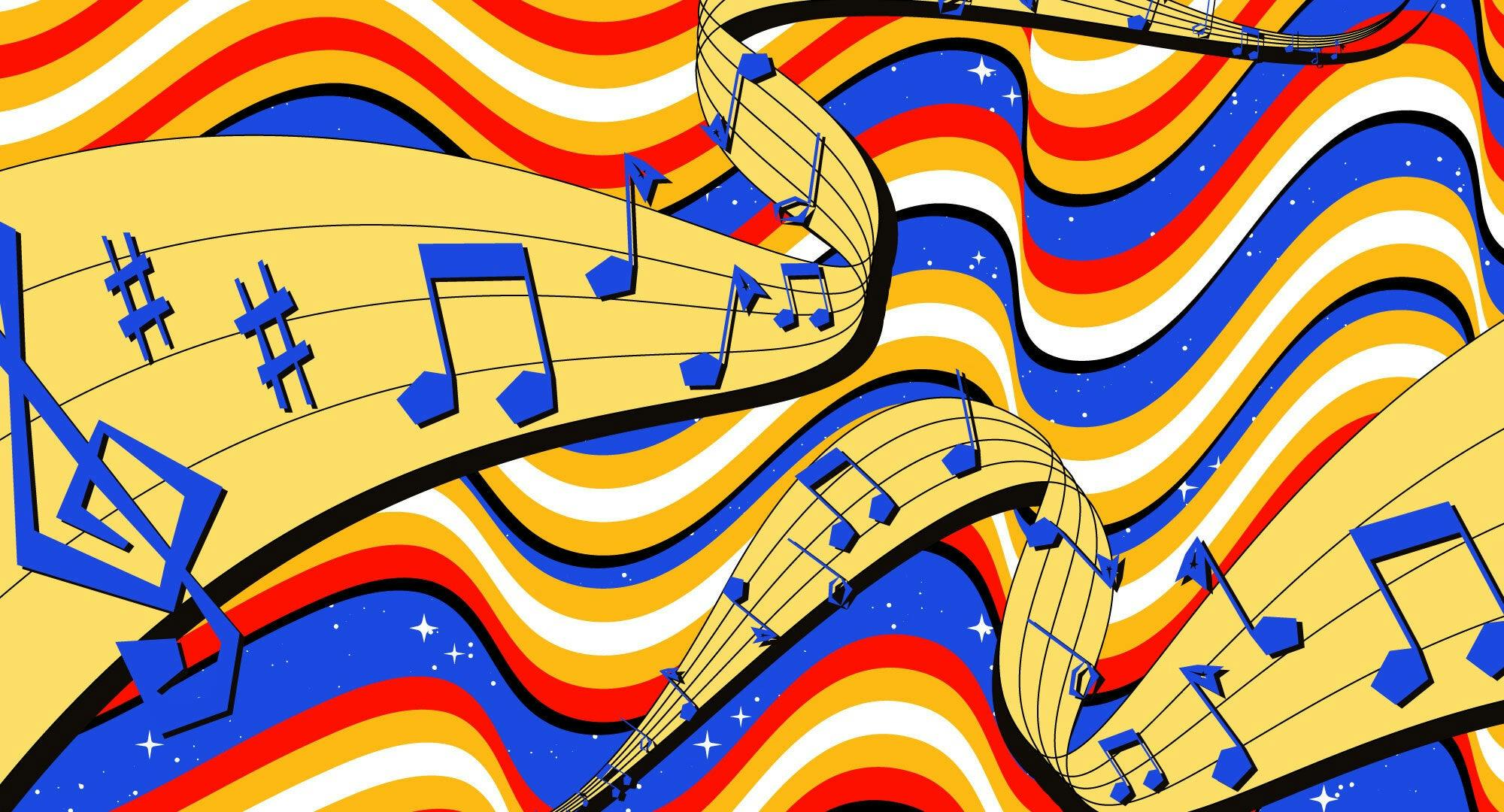
StarTrek.com / Rob DeHart
From the first notes of Alexander Courage’s theme for The Original Series up through Michael Giacchino’s soaring scores for the most recent films, and everything in between, music has been an intrinsic part of Star Trek’s enduring legacy.
Music plays a big part in helping me with my writing. Classical, film scores, and pretty much anything else without actual lyrics, is a candidate for helping me “get in the zone” as I push words. When it comes to writing Star Trek, you might guess that I listen to a lot of music from the different episodes or films, and you’d be right. To be honest, though, it isn’t only a tool for working. I also just simply enjoy it as a fan. I own the scores for all of the feature films, as well as the complete soundtrack collection from The Original Series and a smattering of selections from each of the other television series. I even have a suite of music from The Animated Series. Hey, it’s for work, people.
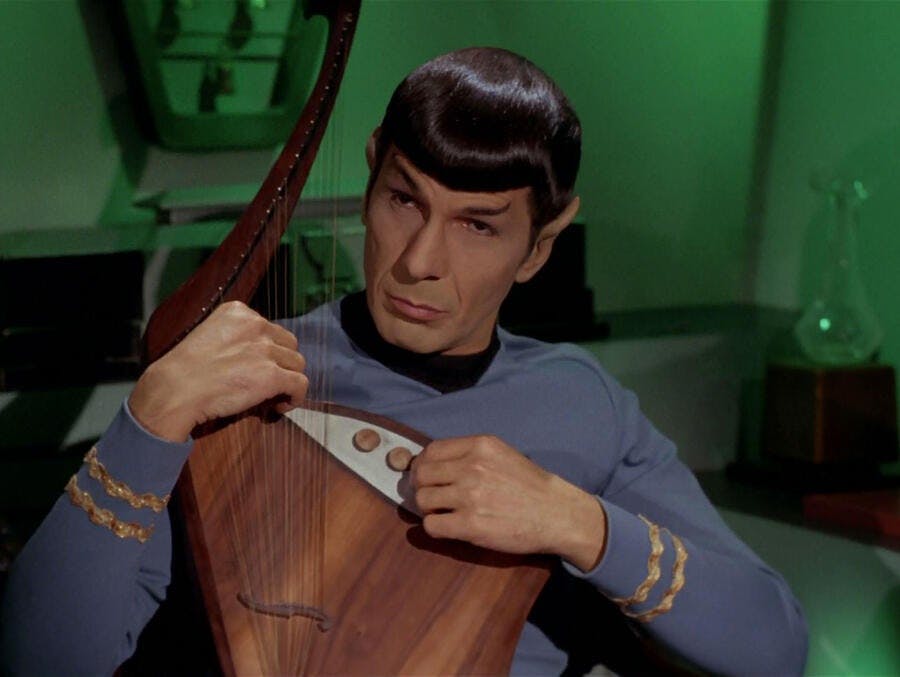
"The Way to Eden"
StarTrek.com
Naturally, I have my favorite pieces and cues. Doesn’t everybody? I could write for days about the music of Star Trek and how it inspires my writing, or how it’s just something I enjoy listening to during long drives. Given my “Ten for Ward” format, I’d only be scratching the surface so far as compiling a list of music from any of the series or films, so I’m hoping folks will chime in with their own favorites.
Still, I’m going to be cheating a bit here and there, rather than just trying to limit my selections to ten individual pieces of music. This isn’t intended to be a definitive or “best of” list, and I’m not citing each television series’ standard opening or closing music, as those are easy picks, but otherwise? Here’s a list to get the discussion started.
“The Doomsday Machine," Star Trek
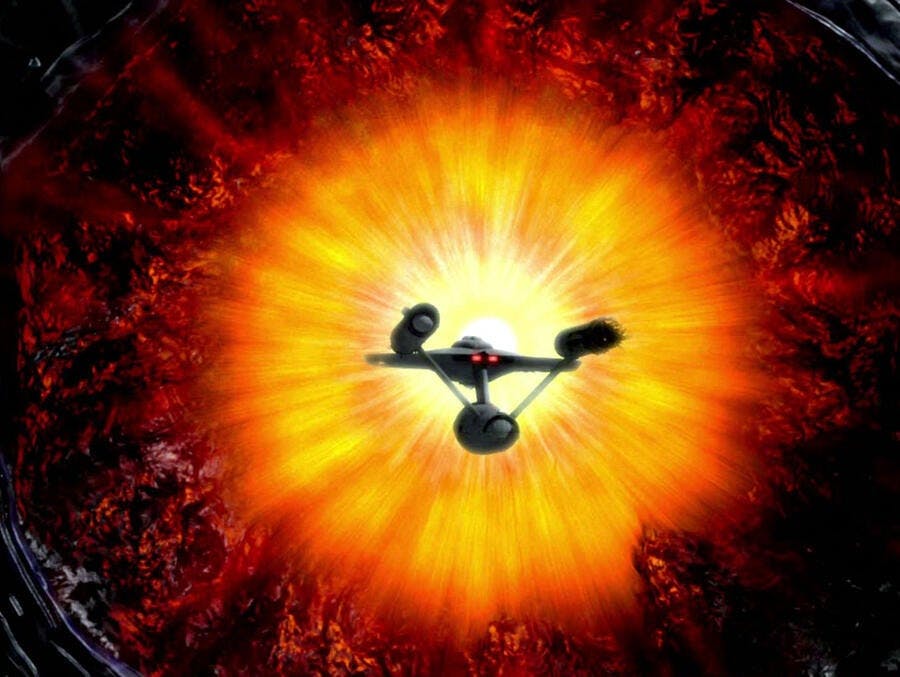
"The Doomsday Machine"
StarTrek.com
To tell you the truth, I could fill up several lists just with music from The Original Series before I even thought about moving on to anything else. I forced myself to pick one example, and I think it’s a doozy. How many films of the era wish they could’ve had a musical arrangement as compelling as the one created by composer Sol Kaplan for this fan-favorite episode?
It’s space opera at its finest as Kaplan punctuates the tragedy of Commodore Matt Decker and the torment inflicted upon him by the mammoth automaton that has destroyed his ship, the U.S.S. Constellation. Likewise, the cues servicing the battle between the machine and the Enterprise are first-rate, and the entire score is a high water mark for a series where music was already one of its defining strengths.
“Stealing the Enterprise,” Star Trek III: The Search for Spock
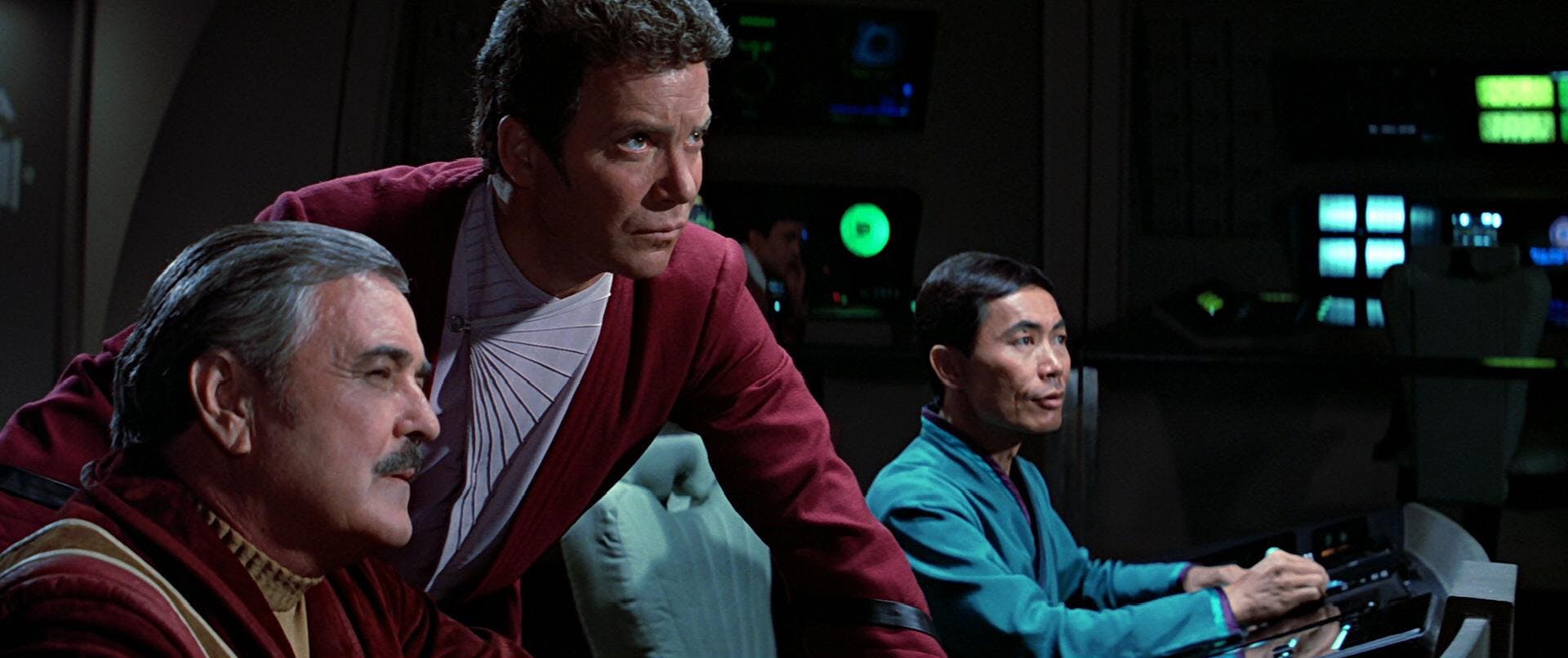
Star Trek III: The Search for Spock
StarTrek.com
James Horner had already hit it out of the park with his score for Star Trek II: The Wrath of Khan, and he comports himself well with this follow-up. However, the original release of the third film’s soundtrack was something of a disservice to him, as it omitted many of the pieces that set this movie’s music apart from the previous film.
The 2010 “Complete Score” release corrects that oversight, even though my favorite cue appeared on the original vinyl album. While borrowing and reworking some elements from his Star Trek II music, Horner still offers an exhilarating piece that highlights the hijacking of the Enterprise from space dock by Admiral Kirk and his command crew.
“Life Is A Dream (End Credits),” Star Trek V: The Final Frontier
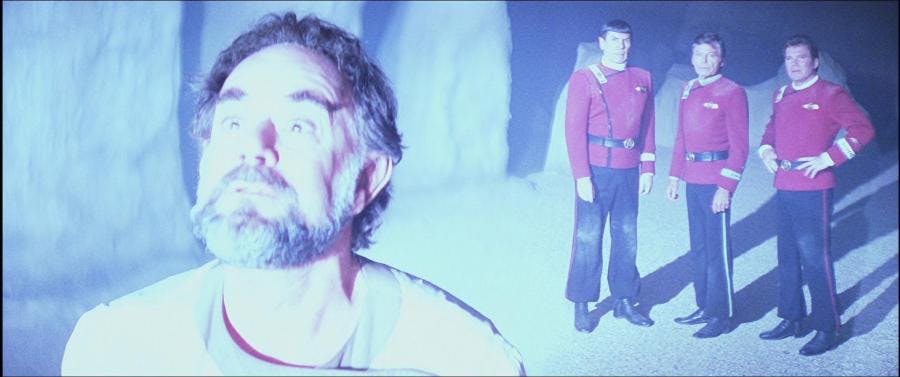
Star Trek V: The Final Frontier
StarTrek.com
It’s impossible to overstate the importance and lasting appeal of Jerry Goldsmith’s musical contributions to Star Trek. His score for Star Trek: The Motion Picture holds a permanent spot on my personal “Top 10 Film Scores Ever” list.
However, his end theme for the fifth movie is my favorite variation of the end credits theme he created for the first film. There’s a little more pomp and flourish in the now-familiar notes, and Goldsmith does a masterful job weaving other themes from the film, including a new take on his familiar “Klingon” music, as well as Alexander Courage’s iconic “Star Trek fanfare.”
“Borg Engaged” and “Captain Borg,” Star Trek: The Next Generation
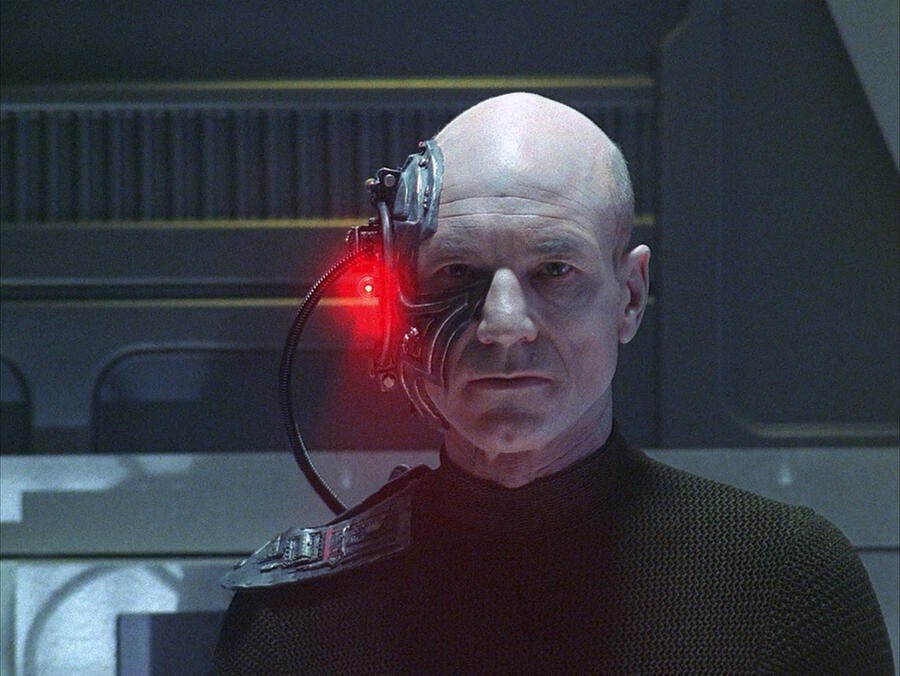
"The Best of Both Worlds, Part I"
StarTrek.com
Star Trek: The Next Generation's third season ending cliffhanger, "The Best of Both Worlds, Part I," deserved its own score worthy of the silver screen, and Ron Jones delivers in fine fashion for this episode as well as the next season’s “Part II.”
The ominous image of the massive Borg cube on the Enterprise’s viewscreen and — later — the shock of seeing Jean-Luc Picard assimilated by the Borg Collective is rammed home by Jones’ haunting themes, which are just two highlights from a superb score written for one of The Next Generation’s most memorable episodes.
“Sign Off,” Star Trek VI: The Undiscovered Country
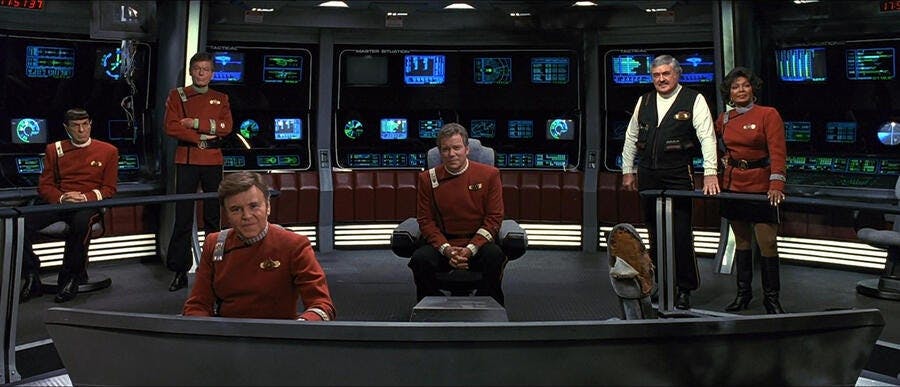
Star Trek VI: The Undiscovered Country
StarTrek.com
Kirk bids farewell to Captain Sulu and the Excelsior, before the entire Original Series cast says goodbye to us after 25 years of bold adventures in the final frontier. This moving piece by composer Cliff Eidelman, accompanying Captain Kirk’s final log entry along with William Shatner and the rest of the cast affixing their signatures to the end of the film, perfectly underscores the melancholy felt by so many longtime fans as we realized that “our” Star Trek had finally come to a close.
“Overture,” Star Trek Generations
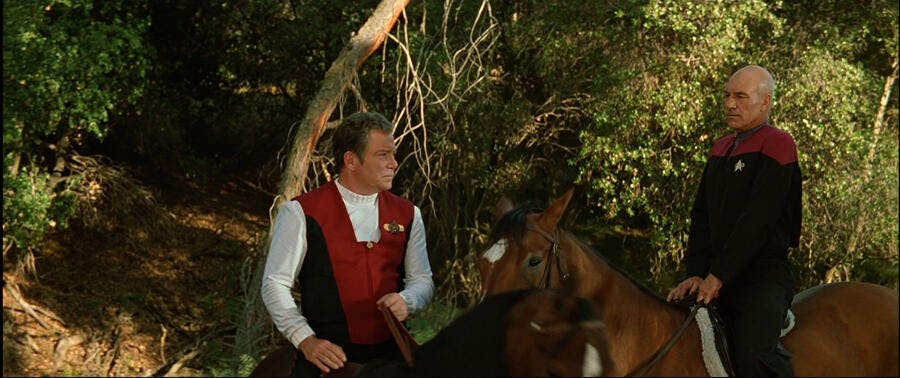
Star Trek Generations
StarTrek.com
Despite its name, this is actually the end credits theme for the first film to feature the cast of The Next Generation. The stirring theme incorporates music from other cues that Dennis McCarthy crafted to give weight to scenes set in the Nexus as well as defining the courage of our heroes, including Captain Kirk’s valiant acts at both ends of the film. Capping off the whole thing is an emotive rendition of the classic “Star Trek fanfare” that acts as a true passing of the baton from one generation to the next.
“Flight of the Phoenix,” Star Trek: First Contact
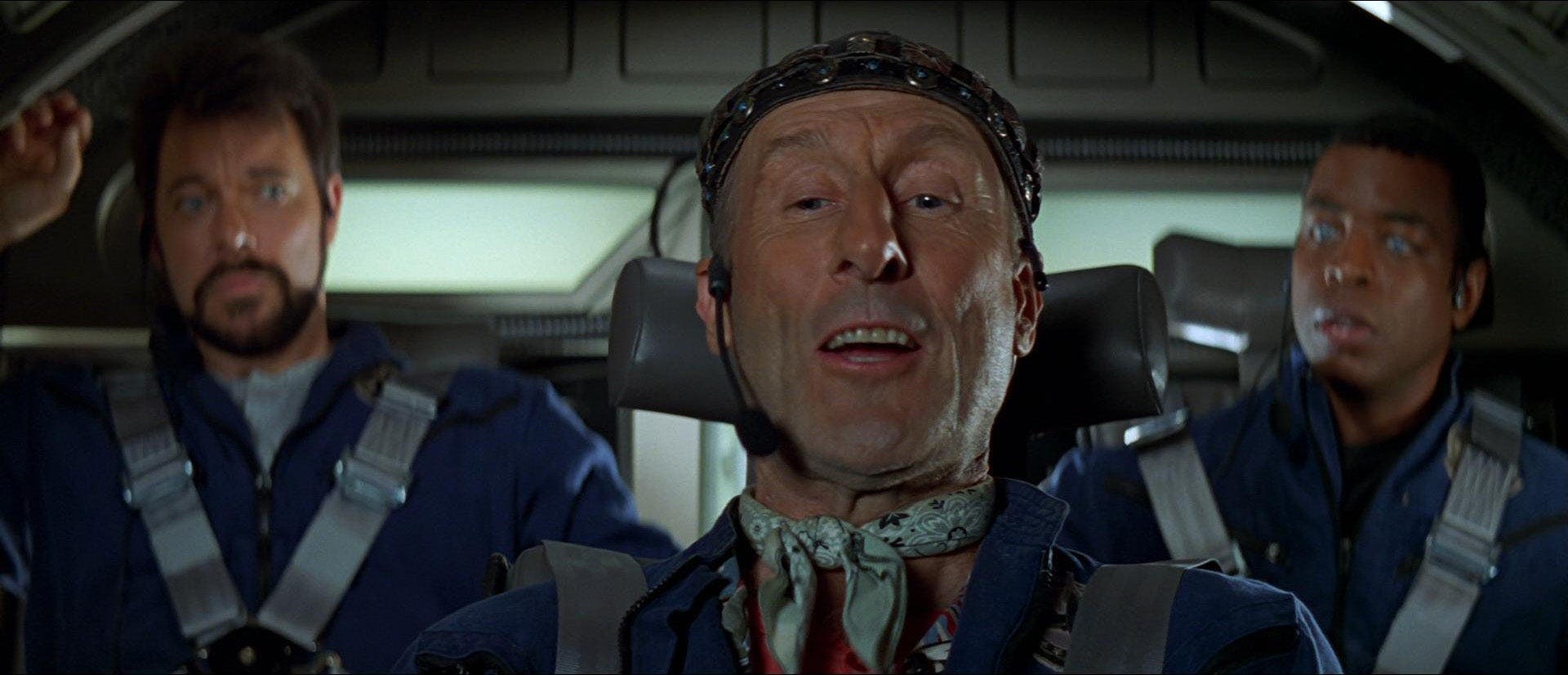
Star Trek: First Contact
StarTrek.com
The score for Captain Picard and the Enterprise-E’s second film outing is an underrated effort by Jerry Goldsmith, who once again succeeds at combining familiar themes with new pieces that give each Star Trek film its own musical identity.
For this piece, the legendary composer’s son, Joel Goldsmith, brings vitality, hope, and triumph to what in one respect is the “birth” of the Star Trek universe to come as Zefram Cochrane (with the help of Riker and La Forge) pilots the fragile Phoenix spacecraft on humanity’s first warp speed flight.
“Bride of Chaotica,” Star Trek: Voyager
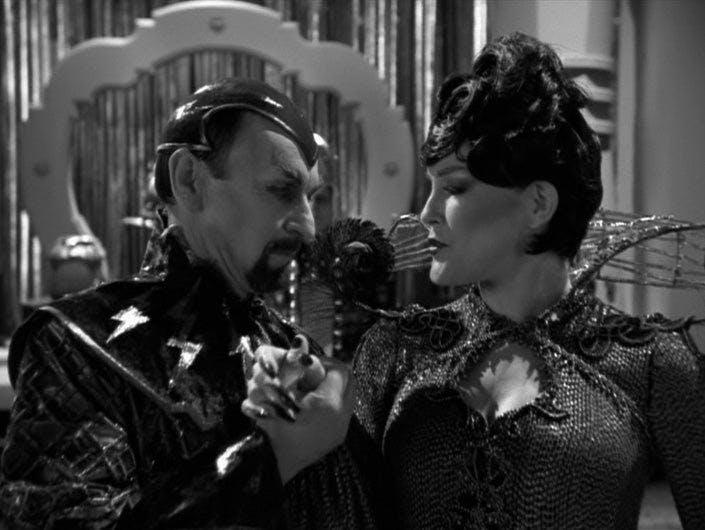
"Bride of Chaotica!"
StarTrek.com
David Bell’s unrestrained musical homage to Flash Gordon and Buck Rogers is an utter treat on all counts. Though the episode also includes cues more consistent with Voyager’s usual lower-key offerings, the “Captain Proton” pieces are delightfully loud and bombastic, in keeping with the 1930s science fiction movie serials to which they’re paying loving tribute.
“In A Mirror, Darkly,” Star Trek: Enterprise
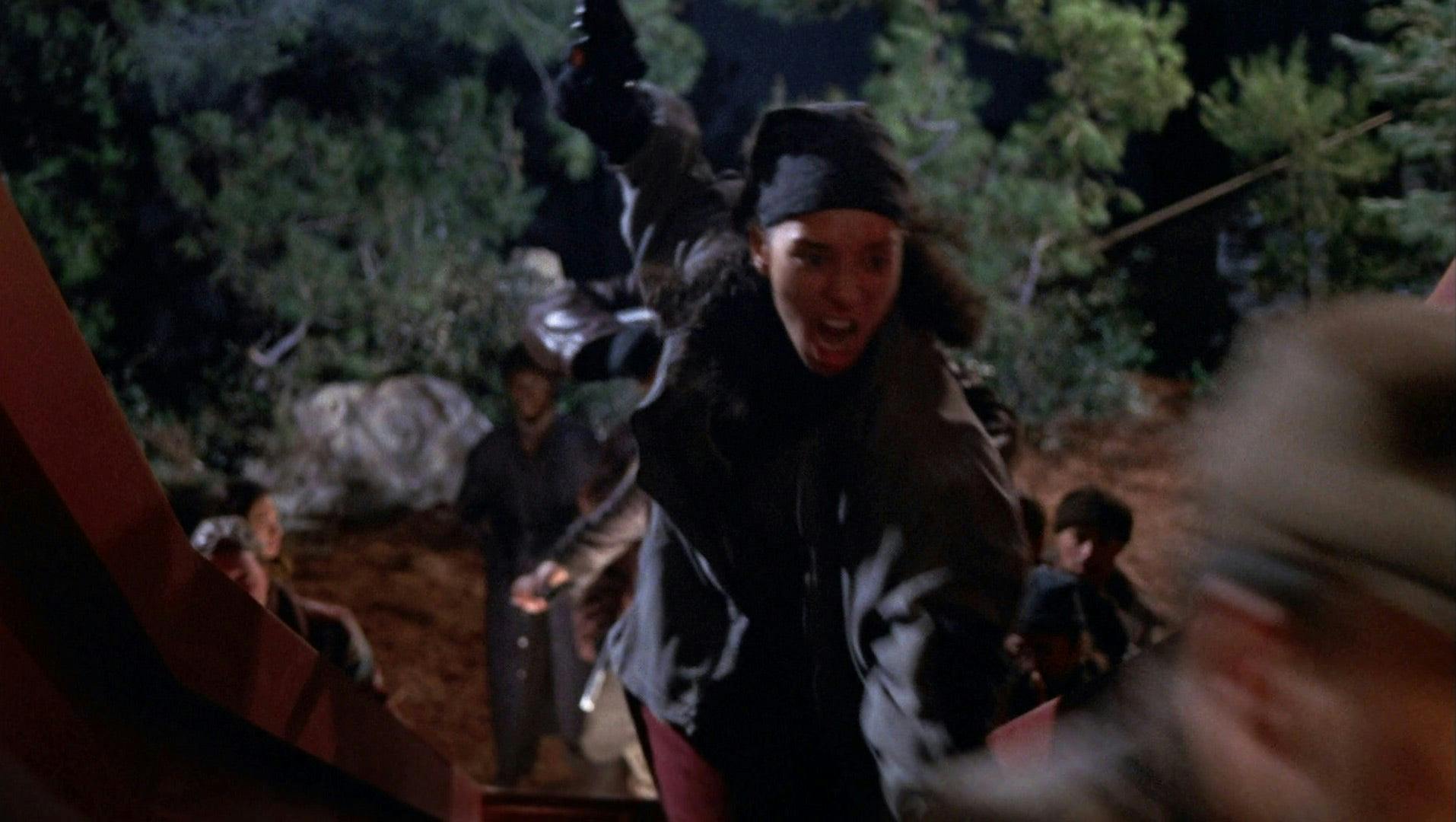
"In A Mirror, Darkly, Part I"
StarTrek.com
What begins as a beautiful callback to Jerry Goldsmith’s themes from Star Trek VIII: First Contact takes on a sinister twist as Dennis McCarthy plunges us headlong into the cruelty of the “Mirror Universe.” The score for this landmark two-part episode includes a new theme to accompany an alternate take on the series’ opening credits sequence, preserving the effect of the entire storyline taking place in the parallel universe with no connection to our own. McCarthy goes all-out as he accentuates all of the backstabbing and scheming weaving around the story’s action sequences, including a foreboding final cue as Hoshi Sato declares herself “Empress.”
“Enterprising Young Men,” Star Trek (2009)
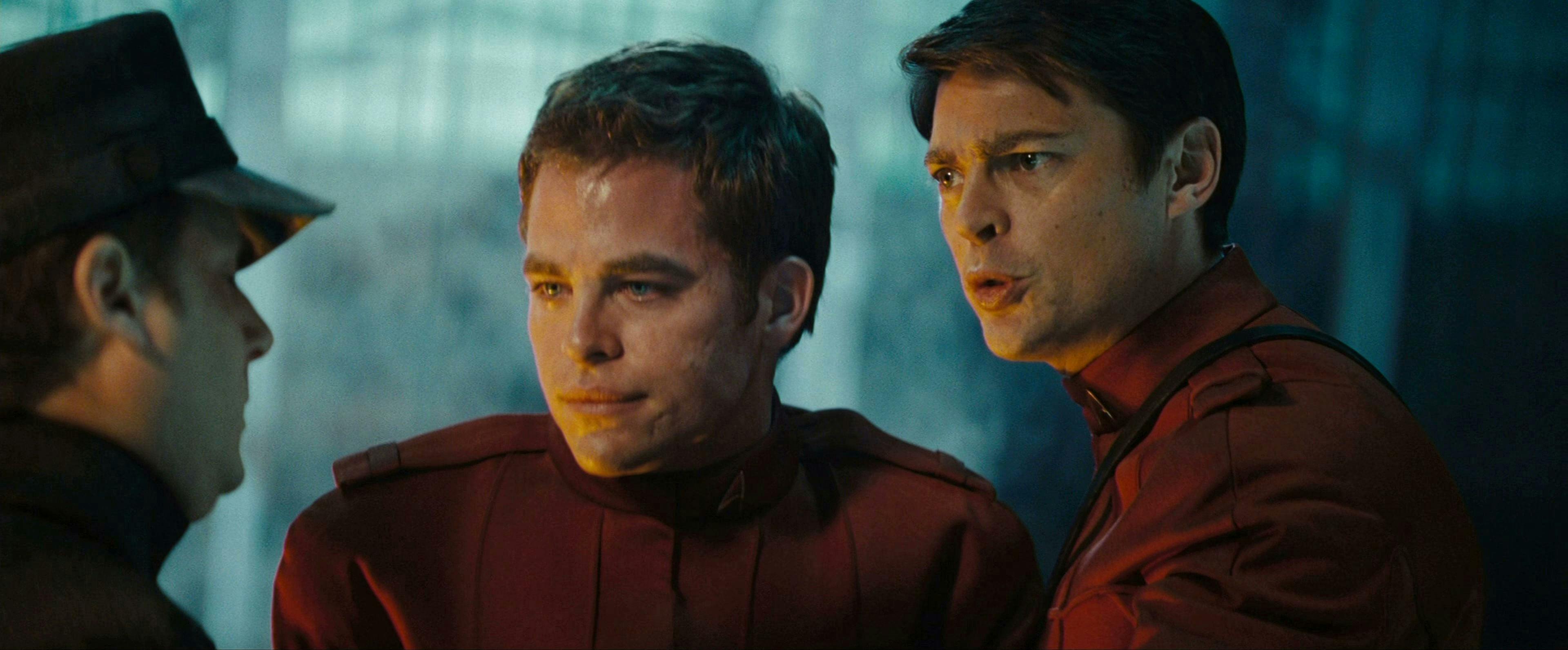
Star Trek (2009)
StarTrek.com
While fans debate the merits of the most recent Star Trek movies, few take issue with the effort composer Michael Giacchino channeled into his musical scores. Nowhere is that more evident than this signature piece from the first film, which encapsulates in rousing fashion the energy of these “new” Star Trek voyages as well as the journey of this modern, bold incarnation of our beloved heroes.
Okay, that’s my 10, and that was playing fast and loose with my own rules. Now it’s your turn. What’s your favorite piece of Star Trek music? Let us know on Social!
